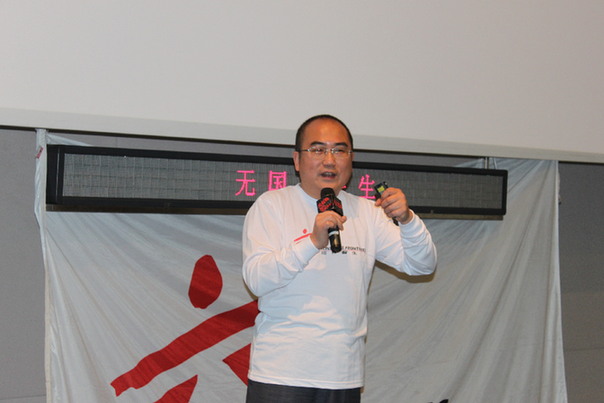In war-torn Pakistan, Wuhan doctor makes a difference
During his three month tenure, Zhang assisted the team on a variety of cases, ranging from emergency surgery to obstetric and gynecological care. In his personal blog on the MSF website, he also mentions performing spinal anesthesia on a patient, a cost-saving procedure common in developing countries.
 |
|
Dr. Zhang Dingyu shares experience with the audience. |
Interacting and sharing best practices with doctors from around the world as well as the chance to broaden his international perspective made the field work with MSF invaluable, Zhang said.
Zhang returned to China in March and is now a spokesman for MSF, addressing audiences at local medical schools and organization events. Recently, Zhang spoke at the Ullens Center for Contemporary Art in Beijing, where the organization screened documentaries about the Congo, Bolivia, Uganda, Central African Republic and Colombia.
"I was impressed by the truth in the documentaries," said Liu Yiqiang, a legal expert working with the International Red Cross who attended the MSF event. "They provided me more angles to understand what we have done in international humanitarian aid. I hope I can attend more events or promote MSF in the future."
In addition to enriching his own personal experience, Zhang said many of the protocols that medical team observed while operating in Pakistan could also benefit health care in China.
"Doctors in China tend to make decisions based on personal experience rather than protocol. The standard protocols I learned in Pakistan would be valuable for many Chinese hospitals that are caring for patients with similar cases," Zhang said.
MSF, known as "Doctors Without Borders" in North America, is an international humanitarian aid organization founded in 1971 which provides medical support and relief for victims of armed conflict, natural disasters, and epidemics in over 70 countries. The organization has been assisting Pakistani nationals and Afghan refugees in Pakistan since 1998.
 0
0 







Go to Forum >>0 Comments